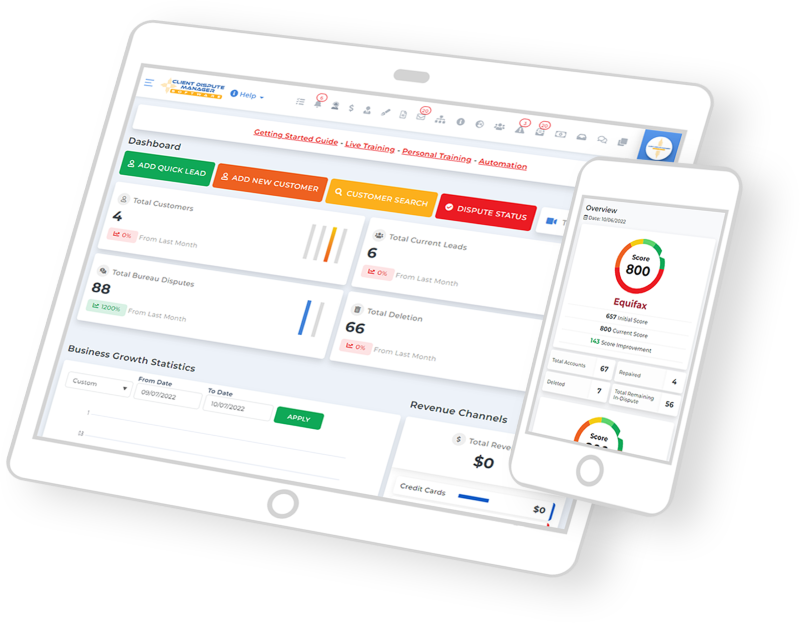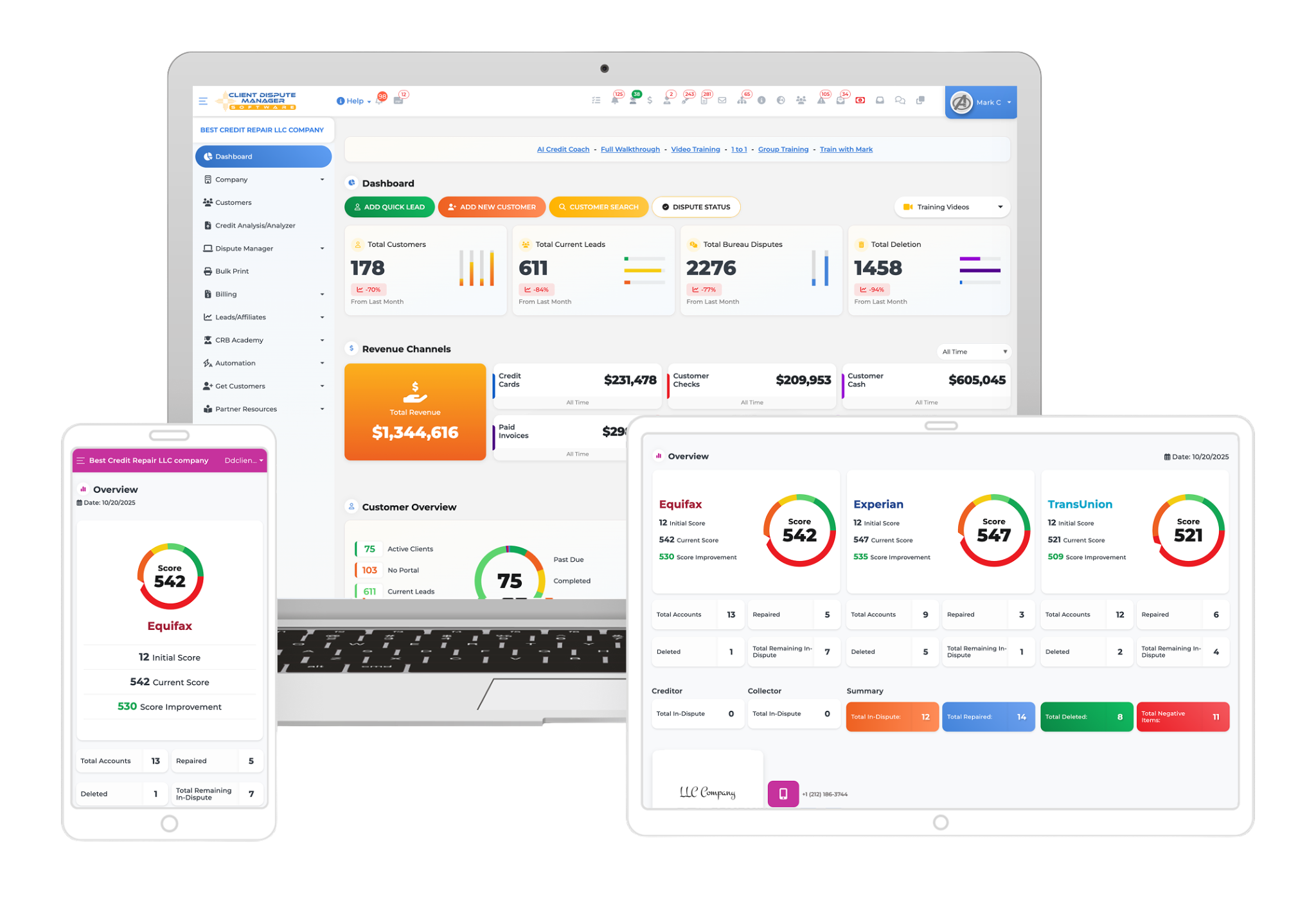Are you struggling with debt and feeling overwhelmed by calls from debt collectors? You’re not alone. Many entrepreneurs and individuals face credit issues at some point in their lives. The good news is that you have the power to negotiate with debt collectors and take control of your financial situation. In this article, we’ll reveal five proven debt collection strategies to help you successfully negotiate with a debt collector and improve your credit standing.
Start Today and Explore the Features Firsthand!
Understanding The Debt Collection Process
Before we dive into the debt collection strategies on how to negotiate with debt collectors, let’s first understand what debt collection is and how it works. When you fail to make payments on a debt, such as a credit card balance or a loan, the creditor may attempt to collect the debt internally. If unsuccessful, they may hire a third-party debt collection agency or sell the debt to a debt buyer to recover the money owed.
Debt collectors are trained to contact you and persuade you to pay the debt, often using persistent and sometimes aggressive tactics. They may call you, send letters, or even attempt to reach you through social media. It’s essential to know your rights when dealing with debt collectors to protect yourself from unfair practices.
The Fair Debt Collection Practices Act (FDCPA) is a federal law that regulates the behavior of debt collectors. Under the FDCPA, debt collectors are prohibited from harassing you, making false statements, or engaging in deceptive practices. They must also provide you with certain information, such as the name of the creditor and the amount owed, and inform you of your right to dispute the debt.
If you believe that a debt collector has violated your rights under the FDCPA, you can file a complaint with the Consumer Financial Protection Bureau (CFPB). The CFPB is a government agency that enforces federal consumer financial laws and protects consumers from unfair, deceptive, or abusive practices in the financial marketplace.
Strategy #1: Verify The Debt
The first step in how to negotiate with a debt collector is to verify the debt. Request a written validation of the debt, including the original creditor’s name, the amount owed, and the date the debt was incurred. This will help you ensure that the debt is legitimate and that you’re dealing with the right collector.
Debt validation is crucial because errors and inaccuracies can occur during the debt collection process. The debt may have been sold multiple times, leading to incomplete or incorrect information. In some cases, you may be contacted about a debt that doesn’t belong to you or has already been paid.
Under the FDCPA, you have the right to request debt validation within 30 days of the debt collector’s initial contact. The collector must then provide you with written verification of the debt, including the original creditor’s name and the amount owed. If they fail to do so, they cannot continue to collect on the debt until they provide the requested information.
If you believe the debt is not yours or has been paid, you can dispute the debt in writing. The debt collector must then cease collection efforts until they provide proof of the debt’s validity. If they cannot verify the debt, they must stop trying to collect from you.
Strategy #2: Know Your Options To Negotiate with Debt Collectors
Before learning how to negotiate with debt collectors, it’s crucial to understand your debt settlement options. You may be able to settle the debt for less than the full amount owed, set up a debt collector payment plan, or even have the debt forgiven in certain circumstances.
Debt Settlement
Debt settlement involves offering a lump sum payment that is less than the full amount owed in exchange for the debt being considered paid in full. This debt settlement option can be attractive if you have access to a significant amount of money, such as from a tax refund or a family member’s assistance.
When considering debt settlement, it’s important to weigh the pros and cons. On the one hand, settling a debt can help you resolve the issue more quickly and avoid further collection efforts. On the other hand, settled debts may be reported to credit bureaus as “settled for less than full balance,” which can negatively impact your credit score.
Start Today and Explore the Features Firsthand!
Payment Plans
If you can’t afford to pay the debt in full but can make regular payments over time, a debt collector payment plan may be a viable option. Debt collectors are often willing to work with you to establish a manageable payment schedule.
When setting up a debt collector payment plan, be realistic about what you can afford. Consider your income, essential expenses, and other financial obligations. Propose a monthly payment that fits your budget and be prepared to negotiate with the debt collector if necessary.
Make sure to get the debt collector payment plan agreement in writing before making any payments. The written agreement should clearly state the monthly payment amount, the due date, and the total number of payments required to satisfy the debt.
Hardship Programs
If you’re facing financial hardship, such as a job loss or medical emergency, you may qualify for a hardship program. These programs are designed to provide temporary relief to borrowers who are struggling to make payments due to circumstances beyond their control.
Contact the original creditor or the debt collector to discuss your situation and explore potential hardship options. They may be willing to temporarily reduce or suspend your payments, waive late fees, or even forgive a portion of the debt.
To qualify for a hardship program, you may need to provide documentation of your financial situation, such as proof of unemployment or medical bills. Be prepared to discuss your circumstances openly and honestly with the creditor or collector.
Strategy #3: Determine What You Can Afford To Negotiate with Debt Collectors
Before engaging in negotiations, assess your financial situation and determine how much you can realistically afford to pay. Create a budget and prioritize your essential expenses, such as housing, food, and utilities. Any remaining funds can be allocated towards debt repayment.
Be honest with yourself and the debt collector about your financial capabilities. Don’t agree to a debt collector payment plan that you can’t sustain, as missed payments can further damage your credit and may result in legal action against you.
If you’re unsure about your ability to make payments, consider seeking the advice of a credit counselor or financial advisor. They can help you create a budget, explore debt settlement options, and develop a plan to improve your financial situation.
Strategy #4: Negotiate a Settlement

If you have the means to make a lump sum payment, negotiating a debt with a collector can be an effective debt collection strategy to resolve the debt and save money in the long run. When proposing a settlement, start with a low offer, around 30-50% of the total debt. The debt collector may counter with a higher amount, but be prepared to negotiate debt with debt collectors until you reach a mutually agreeable settlement.
When learning how to negotiate payment with a debt collector, keep the following debt collection advice in mind:
- Be confident and assertive in your communication with the debt collector.
- Emphasize your financial hardship and inability to pay the full amount.
- Use the debt collector’s desire to recover some money as leverage in your negotiation.
- Don’t be afraid to walk away if the collector is unwilling to accept a reasonable settlement offer.
Once you’ve reached a settlement agreement, make sure to get the terms in writing before making any payments. The written agreement should clearly state the settlement amount, the payment due date, and that the debt will be reported as “paid in full” or “settled” on your credit report.
Strategy #5: Consider Professional Help
If you’re feeling overwhelmed or unsure about how to negotiate with a debt collectors on your own, consider seeking professional help. Credit counseling agencies and debt settlement companies can provide guidance and support throughout the negotiation process.
Credit Counseling
Credit counseling agencies are non-profit organizations that provide free or low-cost financial education and counseling services. They can help you create a budget, develop a debt repayment plan, and explore debt settlement options for managing your debt.
When working with a credit counseling agency, you’ll typically have a one-on-one session with a certified credit counselor. The counselor will review your financial situation, discuss your goals, and recommend a course of action. They may also be able to negotiate with debt collectors on your behalf to reduce interest rates or waive fees.
Debt Settlement Companies
Debt settlement companies are for-profit businesses that offer to negotiate with debt collectors to settle your debts for less than the full amount owed. These companies typically charge a fee for their services, which can be a percentage of the total debt or a percentage of the amount saved through settlement.
While debt settlement can be an effective debt collection strategy, it’s important to be cautious when choosing a debt settlement company. Some companies make false promises or charge high fees without delivering results. Research any company thoroughly and read reviews from past clients before engaging their services.
Also, keep in mind that debt settlement can have a negative impact on your credit score. When you settle a debt for less than the full amount owed, the creditor may report the account as “settled” or “paid in full for less than the full balance.” This can remain on your credit report for up to seven years and may make it more difficult to obtain credit in the future.
Start Today and Explore the Features Firsthand!
Utilizing Client Dispute Manager Software

When dealing with multiple debt collectors and disputes, keeping track of all the communications and documentation can be challenging. This is where Client Dispute Manager Software comes in handy.
Client Dispute Manager Software is designed to help individuals and businesses manage and resolve disputes with debt collectors efficiently. The software provides a centralized platform to store and organize all correspondence, documents, and notes related to each dispute.
Some key features of Client Dispute Manager Software include:
- Contact Management: Keep track of all debt collector contact information and communication history.
- Document Storage: Securely store and access validation letters, dispute letters, settlement agreements, and other relevant documents.
- Reminder System: Set reminders for important dates, such as the 30-day validation period or payment due dates.
- Templates: Access customizable templates for dispute letters and other common correspondence.
- Reporting: Generate reports on dispute status, settlement progress, and other key metrics.
By using Client Dispute Manager Software, you can stay organized, ensure timely responses, and have a clear record of all interactions with debt collectors. This can be especially useful if you need to escalate a dispute or seek legal assistance.
When choosing a Client Dispute Manager Software, look for a reputable provider with a user-friendly interface, robust security features, and good customer support. Some popular options include DebtPayPro, CollBox, and Chargebacks911.
Frequently Asked Questions (FAQs)
Can Debt Collectors Garnish My Wages?
In some cases, yes. If a debt collector obtains a court judgment against you, they may be able to garnish your wages to recover the debt. However, there are limits on how much can be garnished, and certain types of income, such as Social Security benefits, are protected from garnishment.
How Long Can A Debt Collector Pursue Payment?
The statute of limitations on debt collection varies by state and type of debt. In most cases, debt collectors cannot sue you for a debt that is past the statute of limitations. However, they can still attempt to collect the debt through other means, such as phone calls or letters.
Will Negotiating With A Debt Collector Hurt My Credit Score?
Negotiating with debt collectors may have a negative impact on your credit score in the short term. However, resolving the debt and making timely payments on your remaining obligations can help improve your credit over time.
What If I Can't Afford To Pay Anything?
If you’re unable to make any payments due to financial hardship, communicate your situation to the debt collector. They may be willing to temporarily suspend collection efforts or offer alternative debt settlement options, such as a hardship program or debt management plan.
How Can I Stop Debt Collectors From Contacting Me?
You have the right to request that debt collectors stop contacting you. Send a written cease and desist letter to the debt collector, stating that you no longer wish to be contacted. Keep in mind that this does not eliminate the debt, and the collector may still pursue legal action against you.
Conclusion
Learning how to negotiate with debt collectors can be intimidating, but with the right debt collection strategies and tools, such as Client Dispute Manager software, you can take control of your financial situation. Remember to verify the debt, know your debt settlement options, determine what you can afford, and negotiate payment with a debt collector.
If you need additional support, don’t hesitate to seek professional debt collection advice from a credit counseling agency or debt settlement company.
By proactively addressing your debt and improving your credit, you’ll be better positioned to achieve your entrepreneurial goals and secure a brighter financial future. Start your journey towards debt freedom today!

Mark Clayborne
Mark Clayborne specializes in credit repair, starting and running credit repair businesses. He's passionate about helping businesses gain freedom from their 9-5 and live the life they really want. You can follow him on YouTube.
Start Today and Explore the Features Firsthand!
Below Is More Content For Your Review:
- 10 Credit Repair Marketing Strategies
- Online Marketing Strategies for Credit Repair: A Comprehensive Guide


